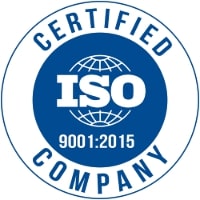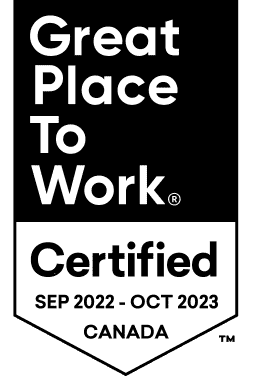BIS Certification for Lauric Acid: IS 10931: 1984

Product Description
Lauric Acid, a saturated fatty acid with a 12-carbon backbone, is primarily derived from coconut oil and palm kernel oil. It is widely used in the manufacturing of soaps, cosmetics, detergents, and food products. In the food industry, Lauric Acid acts as an emulsifier and is used in the production of chocolates and confectioneries.
Given its diverse applications, maintaining high purity and safety standards is crucial to ensure the quality and effectiveness of the final products. BIS certification under IS 10931:1984 ensures that Lauric Acid complies with the required regulatory and quality standards in India, making it safe and reliable for industrial use.
Introduction
The Bureau of Indian Standards (BIS) has mandated that Lauric Acid must be
certified under IS 10931:1984, setting the necessary quality specifications and
purity levels for its industrial and commercial use. Lauric Acid, widely used
in the production of soaps, detergents, and cosmetics, must meet stringent
safety and quality standards. Adhering to IS 10931:1984 ensures that Lauric
Acid is free from contaminants, guaranteeing its purity and suitability for
various applications. BIS certification also demonstrates compliance with
safety regulations, ensuring the product's reliability in food-grade and
personal care formulations.
Why is BIS Certification Necessary for Lauric Acid?
BIS certification for Lauric Acid provides several essential benefits. It
ensures quality assurance by specifying the required purity levels, free from
harmful contaminants, and suitable for industrial applications such as soap,
cosmetics, and food products. The certification also guarantees consumer
safety, assuring that Lauric Acid meets stringent safety standards to protect
against health risks. For manufacturers, BIS certification ensures compliance
with national quality control regulations, helping streamline market
acceptance. Additionally, it enhances market access, as products bearing the
ISI mark are trusted by consumers and industry professionals. Finally, the
certification ensures adherence to environmental and safety protocols,
promoting responsible production practices.
IS 10931:1984 outlines the essential specifications for Lauric Acid, ensuring it meets the required purity, safety, and quality standards for various industrial applications. The standard defines the minimum purity levels necessary for Lauric Acid to be suitable for use in soap, detergent, food, and cosmetic production. It details the chemical composition, focusing on fatty acid content, to maintain consistency and reliability in industrial uses. The standard also includes guidelines for testing key properties such as melting point, iodine value, and acid value, ensuring the product’s suitability. Additionally, it provides recommendations for proper packaging and labeling to prevent contamination during storage and transport, as well as safety guidelines to protect workers and consumers from potential hazards.
Process for BIS Certification
To obtain BIS certification for Lauric Acid under IS
10931:1984, manufacturers must go through a multi-step process:
- Application Submission: Manufacturers submit an application
to BIS, along with required documentation regarding the product, manufacturing
process, and safety measures.
- Document Review: BIS reviews the documentation for
completeness and adherence to the specifications outlined in IS 10931:1984.
- Factory Inspection: BIS inspects the manufacturing facility
to assess the production process, quality control measures, and safety
protocols employed by the manufacturer.
- Sample Testing: BIS-approved laboratories test product
samples to verify that they comply with the purity, chemical composition, and
safety guidelines specified in IS 10931:1984.
- Certification Issuance: If the product meets the necessary standards, BIS grants the manufacturer certification, allowing them to use the ISI mark on their Lauric Acid products.
Documents Required for BIS Certification
Manufacturers seeking BIS certification for Lauric Acid
must submit the following documents:
- Completed application form for BIS certification.
- Product specifications, including details about the
chemical composition and purity of Lauric Acid.
- Manufacturing process details, including production methods
and quality control procedures.
- Test reports from BIS-approved laboratories verifying the product’s
compliance with IS 10931:1984.
- Safety documentation, including handling and storage
procedures.
- Factory layout and information about equipment used in the
production process.
- Environmental compliance documents, confirming that waste disposal
and emissions meet the relevant regulatory requirements.
- Business registration and legal documentation.
These documents are necessary to ensure that the product meets the required standards for both quality and safety.
BIS ISI Mark Certification Costing And Timeline
To Know The Process in Detail, Please Visit:
- BIS ISI Mark Certification for Domestic Manufactures
- BIS ISI Mark Certification for Foreign Manufactures
Under BIS Registration Products ISI and CRS
Conclusion
BIS certification for Lauric Acid under IS 10931:1984 is
vital for ensuring that the product is of the highest quality and meets the
required safety and environmental standards. By obtaining BIS certification,
manufacturers can demonstrate their commitment to product integrity and
consumer safety, while enhancing their product’s credibility in the market.The
BIS certification process can be complex, and manufacturers may find it
challenging to navigate on their own. EVTL India, a leading consultancy firm,
offers expert assistance to manufacturers seeking BIS certification. With
experience in managing the certification process, documentation, factory
inspections, and compliance with Indian regulations, EVTL India ensures a
smooth, efficient path to certification.By working with EVTL India,
manufacturers can focus on their core business operations while ensuring that
their Lauric Acid products are fully compliant with national and international
standards, opening doors to both domestic and global markets.























